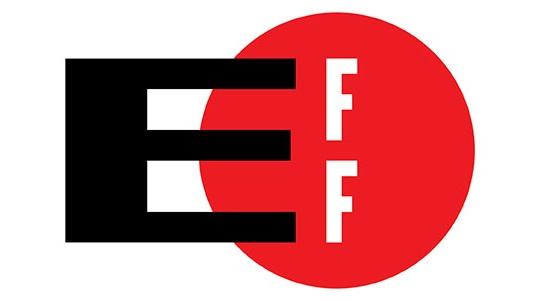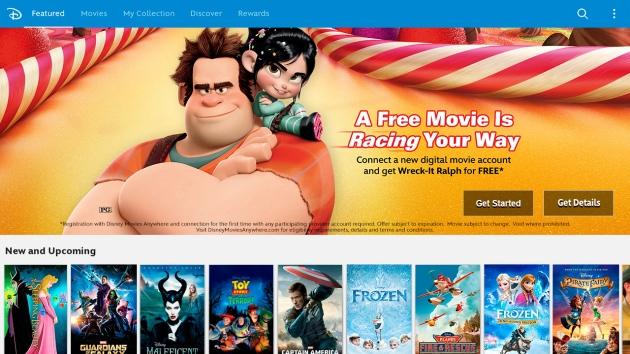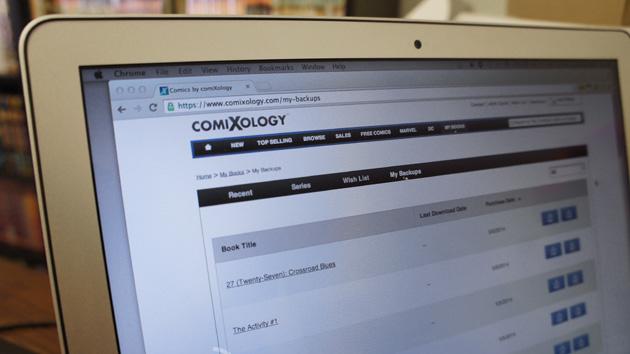drm
Latest

Matchstick delays its Firefox OS media stick to offer Netflix streaming
I hope you weren't in too much of a hurry to snag Matchstick's Firefox OS-based streaming media dongle. The fledgling company has delayed its namesake device to August in order to not only upgrade the hardware (to a quad-core processor and better WiFi), but to add support for anti-piracy protection. As the team explains, Netflix and other "premium" services won't work unless you have some kind of digital rights management (DRM) -- it's hard to sell a media stick that can't deliver the most popular content. The setback won't please you if you're an early backer (or see DRM as a blight on open standards), but it will make Matchstick's $25 device more useful to viewers who'd otherwise pick up a Chromecast to get their online video fix.

Daily Roundup: Inventor of the PC, Left Shark impostors and more!
Dr. Mark Dean helped design the first PC during his career at IBM and shares his thoughts on the future of the desktop computer. Meanwhile, Katy Perry's lawyers go after Left Shark impostors and students in Singapore make a 3D-printed solar powered car. Get all of today's top stories in the Daily Roundup.

Surprise! People don't like Keurig's DRM-protected coffeemakers
Keurig's coffee machines have done great business for its owner Green Mountain Coffee. Making coffee in combination with pretty expensive capsules has made a lot of money for the company, but its latest 2.0 machines have left (excuse me) a bitter taste in the mouths of customers, as Keurig has seen, missing sales and earnings targets in its latest financial report. It cited poor machine sales during the typically lucrative holiday season -- the first quarter that the new Keurigs went on sale. The main issue with the new machines, which can now make coffee both by the cup and in larger quantities, is the DRM-style lockdown on the pods it takes. The popularity of the Keurig machines led to no shortage of cheaper third-party pods, but in an effort to reclaim the lucrative cash cow that was its own coffee pods, the company's second-generation machines packed cameras that detected special ink found only on official Keurig pods. Every other kind of pod simply didn't work.

Report: DRM not to blame for Far Cry 4 woes, says Microsoft
Following a sudden Xbox One Marketplace delisting that coincides with reports that some players could no longer play their legitimate digital copies of Far Cry 4, Microsoft has issued assurances that these woes were not the result of draconian Xbox One DRM. The argument, as outlined by Gamespot, is that the delisting was an accident, and one that was quickly rectified by Microsoft. During the delisting, numerous reports of players being unable to play the game - specifically, digital copies of Far Cry 4 - began to crop up, even after players had deleted and redownloaded the Ubisoft shooter. These reports ceased immediately once the game returned to the Xbox One Marketplace. This leads some to believe that the delisting also took down whatever online verification system is attached to the game, despite Microsoft's claims that the Xbox One does not require constant online verification. In a statement sent to Gamespot, Microsoft denies that the problems had anything to do with hidden DRM, though the Xbox One manufacturer offers no alternate explanation of what actually happened. Instead, Microsoft responds to the rogue DRM allegations with the following boilerplate statement: "If customers own the rights to a game, they can visit their download history and initiate a re-download whenever they please - even if the game has been delisted from Xbox Store and is no longer available for purchase." [Image: Ubisoft]

Apple's iPod antitrust lawsuit hinges on iTunes 7
Apple's iPod antitrust lawsuit wrapped up on Monday afternoon, capping off a week-long trial that has been close to 10 years in the making. Now, the case has been handed off to a jury that will deliberate whether or not Apple chose to keep its iTunes/iPod ecosystem closed off for anti-competitive reasons or if it was done for security reasons. If there's been one recurring theme from Apple throughout the entirety of the trial, it's that keeping competing music services off of the iPod was more about security than anything else. In fact, Steve Jobs, during a videotaped deposition conducted in 2011, said that record companies reserved the right to immediately remove all of their music from iTunes if someone figured out a way to circumvent Apple's FairPlay DRM. Ars Technica adds: The jury will make an unusual split decision, deliberating first over the narrow issue of whether iTunes 7.0 was a true product improvement or an anti-competitive scheme to kick out Apple competitor RealNetworks. If the jury sees the "software and firmware updates" in iTunes 7.0 as a real improvement, the case will be over-a win for Apple. If it doesn't see it that way, the jurors will still have to decide if Apple broke competition laws and, if so, how much the company should pay in damages. Plaintiffs are asking for $351 million, and any award will be tripled under antitrust law. It's an interesting case for the jury to decide because the "damage" Apple was so fearful of is purely theoretical. Because Apple was so vigilant about locking down the iPod, Apple can't really point to any examples which illustrate how a wide open iPod would adversely affect the user experience. As for iTunes 7, the software update at the heart of this legal battle, well, we covered all of its improvements all the way back in 2006. Album & Cover Flow views - you can now view your library by album art covers, or use a snazzy 3D 'cover flow' (you mean, like CoverFlow?) to really show off New Source organization - each media type gets its own library and source, offering much easier access and organization Gapless playback - MP3, AAC and Apple Lossless files that are one cohesive album can now sound like one 640 x 480 video resolution for TV and - as everyone predicted - movie downloads from the likes of Disney, Pixar, Touchstone, Miramax. Movies adopt the same usage rights as TV shows (i.e. - no burning) Integrated iPod management - you can adjust what media is synced to your iPod from within iTunes, instead of having to clunk around in the preferences. We haven't seen what this looks like yet, but it sounds like a much better idea for obvious reasons Transfer purchases via iPod Those seem like rather substantive upgrades to me.

Telling people how to remove DRM isn't illegal
We all know that it's against the law to sell copyrighted material, but is it also illegal to tell people about software that can strip DRM off e-books without the intention to distribute? New York Judge Denise Cote has recently ruled that it's not. The lawsuit in question, which was never cut and dry to begin with, was filed by Penguin and Simon & Schuster against Abbey House Media, a company that used to sell e-books for them. Abbey House was bound by law to protect those files with DRM, but when it was a month away from shutting down its digital bookstore in 2013, someone in the company felt compelled to help customers gain control of the e-books they already bought.

Eddy Cue testifies: Apple once contemplated licensing its Fairplay DRM to competitors
With Apple's iPod class action lawsuit underway, Apple executive Eddy Cue took to the stand today and testified about Apple's implementation of DRM on iTunes music files back in the mid-2000s. Recall that the current suit alleges that Apple actively took measures to prevent songs purchased from competing music stores from playing on the iPod. What's more, Apple even went so far as to subtly remove unauthorized songs from users' iPods by instructing them to restore their device to factory settings. For its part, Apple argues that this was done to prevent malicious activity. In any event, Cue -- known as an integral part of Apple's negotiating team -- spoke today about Apple's original implementation of DRM on the iTunes Music Store. While cynics are quick to argue that Apple engaged in anti-competitive behavior, Cue relayed that Apple, in fact, wasn't keen on DRM at the outset. On the contrary, Cue emphasized a fact that has been repeated time and time again: namely that the implementation of DRM was done at the behest of music executives fearful of music piracy gone wild. Interestingly enough, The Verge reports that Apple, per Cue's testimony, at one point contemplated licensing their homegrown DRM technology, dubbed Fairplay, to the market at large. "We thought about licensing the DRM from beginning, it was one of the things we thought was the right move that because we can expand the market and grow faster," Cue told the court. "But we couldn't find a way to do that and have it work reliably." The Verge report adds some color as to why Apple didn't ultimately go down this route: As issue, Cue said, were things like interoperability with the growing multitude of MP3 players. New devices from other companies would come out, and might not work with that system. "Others tried to do this, and it failed miserably," Cue said. "One of those was Microsoft." Cue also noted that when Apple first floated the idea of the iTunes Store to record labels, that they rebuked the idea because they had their own stores with DRM systems that could be different from song to song, and from device to device. DRM-laden music on the iTunes Store was long a controversial topic as it famously, and frustratingly, prevented consumers from playing music they owned on competing devices. While there were workarounds such as burning purchased songs to a CD and uploading them back up to iTunes, the problem still annoyed many users before Apple ultimately did away with DRM restricted music in late 2009.

Apple deleted users' non-iTunes music and didn't tell them about it
Long before Apple was shoehorning the latest from U2 into your iTunes account, it was deleting songs originating from rival services. Tell us if this sounds familiar: You grabbed Lady Gaga's The Fame Monster from Amazon MP3 in 2009, threw it in your iTunes library, went to sync your 160GB iPod classic and got an error message saying you needed to restore the device's factory settings. According to The Wall Street Journal, upon restoring, non-iTunes music would disappear. In the courtroom for the anti-trust case, prosecuting attorney Patrick Coughlin said that Apple directed the software to not tell users about their now-missing songs, too. Cupertino countered by saying that its actions were to thwart any attempts at hacking into iTunes and that users were kept in the dark for a reason. As security director Augustin Farrugia testified: "We don't need to give users too much information... We don't want to confuse users."

Elite: Dangerous won't feature offline play after all
Elite: Dangerous developer Frontier has seemingly reneged on an earlier promise to deliver an offline version of its popular spacefaring title. Fans of the crowdfunded hit caught wind of Frontier's plans via the game's 49th newsletter, and executive producer Michael Brookes confirmed the decision in subsequent forum posts. "We have always said the way to play the game is online - indeed it says so in the quote of me being circulated," Brooks wrote. "The choice was develop the game in the way we wanted, or not. Trying to make it offline would have made both experiences worse than we were willing to tolerate. We had to make the decision and have done so. I would say that an offline rewrite of the game is unlikely for the future." [Thanks golden radish!]

EFF petitions US government to resurrect abandoned games
The Electronic Frontier Foundation filed a petition to the Library of Congress and the United States Copyright Office this week over the modification of abandoned games, particularly those that require an online connection to prevent piracy. The EFF is seeking a change to current laws that would deem mods that strip out authentication checks as fair use of the software after developers take those servers offline. The foundation noted Civilization 5 and Mario Kart Wii as examples in its petition, though the list of eligible abandoned games goes back many years. Should the Library of Congress approve the request, legally-acquired copies of many of those games would be open to modification so players can enjoy them on third-party servers. The petition does note that MMOs and "persistent world" games would be exempt from the change, as their "audiovisual content is primarily stored on the developer's server and not in the client." [Image: Electronic Frontier Foundation]

Disney Movies Anywhere service comes to Android with a link to Google Play
After years of development Disney unveiled its digital movie service on iOS earlier this year and today it's coming to Android too. When it launched, Disney Movies Anywhere had an unprecedented deep link to iTunes, and now on Android it's sharing a similar tie with Google Play. For users it's apparently as seamless as can be -- as long as they have a Disney account, any movies they unlock will be viewable on either family of devices (or the DMA website). The agreement covers access to around 400 Disney, Pixar and Marvel movies, and to make the sign-up worth your while, Disney is throwing in a free copy of Wreck-it Ralph for anyone that signs up and links an account. Going cross-platform makes Disney's KeyChest-based system much more appealing -- and conveniently timed for the launch of Nexus Player / Android TV -- but we're still waiting to see if a tie-up with the likes of Amazon or Ultraviolet can fulfill the promise of unlocking a single copy in one store or with a Blu-ray / DVD purchase, and then being able to watch it anywhere, on any device. The Android app isn't live yet(update: here it is), but you can check out a demo video for now (embedded after the break).

Apple's old DRM policies are about to go on trial
Once upon a time, music purchased in Apple's iTunes store was saddled with a DRM technology called "FairPlay." It did just what you'd expect: keep unauthorized computers and devices from playing music purchased on the service. It's gone from Apple's music store now (but can still be found in eBooks and apps), but it's still making waves: Apple is facing a $350 million anti-trust suit claiming the DRM was used to stifle market competition.

Steam competitor GOG is getting into the movie selling business
The generous group over at Good Old Games is prepping to bring another medium into its trademark DRM-free digital distribution platform: movies. Starting today, you can head over to GOG.com and download or stream a handful of gaming-and-geek focused documentaries. What's on tap? Art of Playing, TPB AFK: The Pirate Bay Away From Keyboard and Indie Game: The Movie (seen above) among others, and you can check out the first two flicks in this list absolutely free of charge. If none of those strike your fancy the company promises more titles will be added on a weekly basis. Don't expect to see Guardians of the Galaxy pop up on the site's digital shelves in the coming months, though.

Ubisoft won't attempt an unlimited gaming service until EA proves it can work
It turns out Electronic Arts' Access program has at least one high-profile spectator: Ubisoft CEO Yves Guillemot. The Assassin's Creed and Watch Dogs company's head says that Ubisoft is keeping a keen eye on what that type of service can offer players, telling Game Informer that he's open to "any way" of giving fans access to Ubisoft's games. However, "it has to work well and be a smooth experience," he says. An Access-like system seems like the natural progression that the French company's been building toward for awhile, albeit slowly, putting various pieces in place and testing them out over time. Given Ubisoft's checkered history with DRM issues and that Uplay Passport system, though, it's probably better if Guillemot lets someone else deal with the growing pains with this time 'round.

Comixology now offers DRM-free comic backups, but only from select publishers
When Amazon purchased Comixology, it was a herald of change: iOS users lost the ability to purchase comics in-app, Android users were gifted with a new purchasing system and, now,the digital book seller is going DRM-free. Sort of. Comixology CEO David Steinberger announced today that DRM-free backups of select comics are now available to download in PDF and CBZ format, giving readers the ability to enjoy their content outside of the Comixology ecosystem for the first time. That said, it's somewhat limited: backup downloads are only available to book published by Image Comics, Dynamite Entertainment, Zenoscope Entertainment, Thrillbent, Top Shelf Productions and MonkeyBrain Comics -- in other words, publishers that have already dabbled with DRM-free comic distribution.

Behind the mic drop: Sony re-wrote E3 script after Microsoft backlash
Sony's E3 2013 press conference was the definition of mic drop – Sony Computer Entertainment of America CEO Jack Tretton stepped on stage and devoted his finale speech to tearing down the contentious DRM, always-online and used-game restrictions that Microsoft had just announced for the Xbox One. He never mentioned Microsoft by name, but instead simply listed the things that the PS4 would allow. And the crowd went wild. Sony Computer Entertainment head Andrew House re-wrote that speech the weekend before E3, after witnessing backlash to Microsoft's policies, he said during the Develop 2014 conference (as reported by Eurogamer). "I remember reading an article literally the weekend before E3 that was basically saying that this is the direction Microsoft was taking and that it was only a matter of time before Sony adopts the same approach," House said. "That sort of put me on the back foot and I went and re-wrote portions of my E3 presentation script that weekend and we re-crafted the presentation because there was now an onus on us not to be seen to be going down the same path." House said Sony's policies never changed; only the messaging did. One week after E3 2013, Microsoft reversed the most scandalous of its Xbox One DRM policies. A few of Sony's promised features for the PS4 haven't yet materialized – such as sleep mode and the ability to let a friend take over your game online – but Sony is "working on it."

Celebrate freedom from DRM with Humble Bundle July 4 sale
The Humble Store is currently hosting a particularly patriotic event, dubbed the DRM Freedom Sale, to celebrate the Fourth of July. The sale features games like Broforce, Surgeon Simulator 2013 and Retro City Rampage, discounted by up to 85 percent. Not only can you feel free to use the money you'll save on some sweet explosion-rockets, but you can feel good about yourself too, as 10 percent of the proceeds go to charity. You might want to hurry though; like a red, white and blue firework in the night sky - this deal will only exist for a short while. At the time of writing, there are just more than three hours left. [Image: Humble Store]

Ubisoft emerges unscathed by DRM patent infringement lawsuit
A United States District Court judge has dismissed a lawsuit against Ubisoft which claims that the publisher violated patents held by Digital Reg of Texas in the design of its infamous uPlay DRM software. Initially filed in 2012, the lawsuit alleges that Ubisoft (alongside other companies such as EA, Valve and Flash creator Adobe) violated six patents held by Digital Reg relating to remotely tracking access to software after distribution and post-distribution security, among other typical functions of digital rights management software. Judge Claudia Wilken dismissed the case against Ubisoft for "numerous reasons," among them an agreement between Digital Reg and Valve covering third-party use of the DRM patents in question. According to Wilken, Ubisoft's alleged infringement was nullified under the terms of that accord. Despite this victory, uPlay remains a controversial component of Ubisoft games. As recently as two months ago, the uPlay system was preventing legitimate owners of the PC version of Watch Dogs from playing the open-world hacking adventure. [Image: Ubisoft]

Keurig's coffee copy protection should take just months to crack
Much like printer makers barring cheap ink, Keurig is using elaborate methods to block third-party coffee pods; its upcoming Keurig 2.0 machine will have cameras that read tags and limit you to official brews. Think of it as K-cup copy protection. Unfortunately for the company, those added measures may be for naught. TreeHouse Foods, which sued Keurig for allegedly abusing a monopoly with its 2.0 system, now estimates that it should take just a "matter of months" to replicate the K-cup technology. The discovery should keep TreeHouse selling unofficial pods that cost significantly less than Keurig's, and it could also thwart similar protection schemes in other companies' coffee makers.

Mozilla bends on 'built-in' Firefox DRM so it can keep streaming Netflix
While Netflix and others work on new ways to stream movies to your browser through HTML5 that don't use Flash or Silverlight plugins, Hollywood's requirements for DRM to prevent copying have put Mozilla in a bind. The DRM proposed means user's don't know exactly what's going on their machines or if it's violating their privacy, but without it Firefox will eventually be locked out of streaming most movies and TV shows. As a result, Mozilla announced plans to roll it out in the next few months on Windows, Mac and Linux versions of the browser, so one upside could be official Netflix support on Linux.












